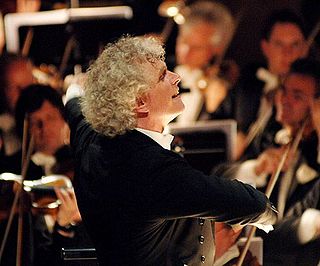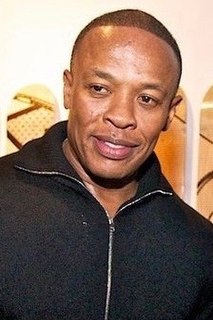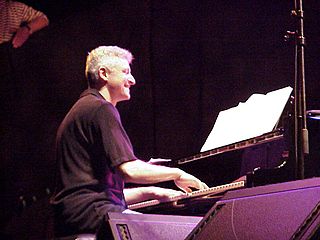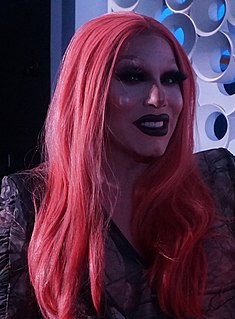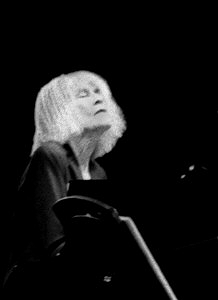A Quote by Simon Rattle
The jazz records come out a lot. You find that with many musicians - we don't listen to our own music for relaxation.
Related Quotes
It doesn't matter if it's jazz or not. It's about how we listen, how we interact, how we guide our attention when we're listening, and how we can refine what we're doing musically. Also how we can create our own music, and what opportunities that can bring us, as creative musicians. And then insisting that musicians put themselves through an intellectually rigorous process, which involves a lot of reading and writing, while insisting that music scholars think about ethics.
Of course we've lost so many superstars who've made jazz what it is. We've lost so many musicians who created new things and changed the way we think about music and who took jazz to a new level. So jazz is suffering from that. But we still have a lot of incredible people playing jazz in the world. We have a lot of people leading the way.
I visited New York in '63, intending to move there, but I noticed that what I valued about jazz was being discarded. I ran into `out-to-lunch' free jazz, and the notion that groove was old-fashioned. All around the United States, I could see jazz becoming linear, a horn-player's world. It made me realize that we were not jazz musicians; we were territory musicians in love with all forms of African-American music. All of the musicians I loved were territory musicians, deeply into blues and gospel as well as jazz.
For me, let's keep jazz as folk music. Let's not make jazz classical music. Let's keep it as street music, as people's everyday-life music. Let's see jazz musicians continue to use the materials, the tools, the spirit of the actual time that they're living in, as what they build their lives as musicians around.
The hardest thing about being a young musician on the jazz scene is that there are so many styles of music, jazz and otherwise, that you're exposed to. The challenge is to use all that in your own way, to personalize all that has come before you and all that is happening around you. To get the music the way you want it, there's a lot of work involved.
I loved music. Music was a big thing and so I started collecting records. I had a large collection of jazz records and that was something else I used to listen to. At night, there was a - what the heck was his name? There was a famous - Jazzbo Collins, I used to listen to at night, and some other guys.
